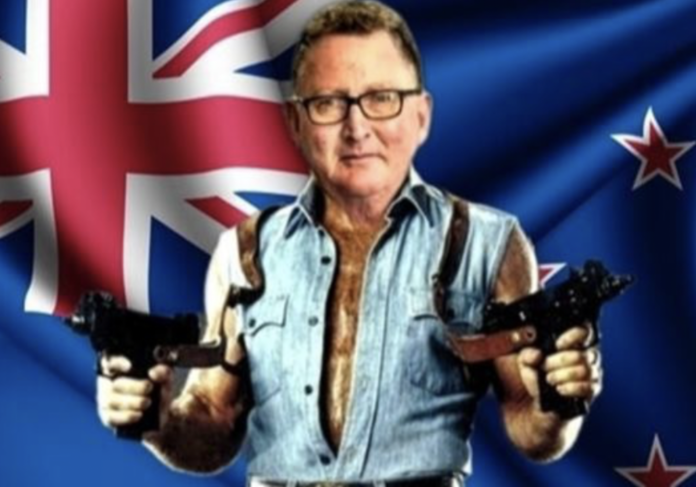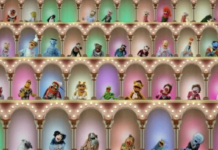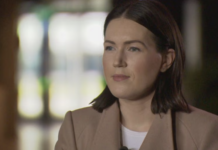Her good news is the OCR went up 50 points.
The bad news is they discussed 75 points.
The narrative those desperate to get back to capitalism uber alles and all the juice profits they’ve gotten used to want to spin is that inflation has been killed and wide can get back to normal.
Truth is normal is over.
Truth is the war in the Ukraine means normal isn’t here.
Covid showed normal is over.
Climate change has interrupted the agricultural calendar and we won’t be getting it back so normal is off the menu.
The free market global supply chains that diluted the inflationary impact of the $25Trillion we printed to offset the 2008 global financial crisis have ruptured forcing the West to import inflation as manufacturing supply chains transition from ‘Just-in-time’ to ‘Just-in-case’, this alongside base ingredient nations like the Ukraine and Russia out of operation mean the base level price of every produced good has gone up.
The Free Market dream of mobile capital that enables the lowest cost capitalism is dead and no one wants to acknowledge that.
This is the time of hyper regionalism, that realignment is going to force prices up and all Orr has is the OCR stick.
We are trapped between prices that are going to increase regardless so Orr either gets ahead of this or he wastes all his market capital.
That’s why they were discussing 75 points!
We are in a hyper inflationary global market, it’s just that no one knows it yet.
To date those wanting Reserve Bank Governors to step back from OCR overreach have been crying out inflation has stalled, but as the latest figures show, gas it peaked or is inflation pausing for breath to explode into a hyper inflationary Armageddon?
From the US…
US inflation slows to 6.4 per cent, but price pressures re-emerge
The pace of consumer price increases eased again in January compared with a year earlier, the latest sign that the high inflation that has gripped Americans for nearly two years is slowly easing.
At the same time, the consumer price report from the government showed that inflationary pressures in the US economy remain stubborn and are likely to keep prices elevated well into this year. Rising costs will also keep pressure on the Federal Reserve to raise its benchmark interest rate further and to keep it there through year’s end.
Consumer prices climbed 6.4 per cent in January from a year earlier, down from 6.5 per cent in December. It was the seventh straight year-over-year slowdown and well below a recent peak of 9.1 per cent in June. Yet it remains far above the Federal Reserve’s 2 per cent annual inflation target.
And on a monthly basis, consumer prices increased 0.5 per cent from December to January, much higher than the 0.1 per cent rise from November to December. More expensive gas, food and clothing drove up last month’s figure.
…as TDB pointed out, the biggest component of US inflation was petrol prices which Biden had been able to successfully repress by tapping the US Strategic Oil Reserves.
That’s a one trick pony he can’t play again.
In NZ we saw 10.3% food inflation prices, down from 11.3%, but underlying that drop was the caution that we had pulled all the levers to drop prices and it didn’t take into account the food inflation impact of the Auckland Flooding or Cyclone Gabrielle and with another Cyclone possible before April, that 10.3% could easily spike over the next 3 months.
Liam Dann: The rate of food price rises has dropped – a glimmer of calm in the inflation storm?
The food price data that dropped today was still ugly.
But at of 10.3 per cent, the annual rate of increase was lower than expected and down on the 11.3 per cent rise for the year to December.
…we see NZ House prices falling but stubbornly high core inflation costs now baked into the economy.
This all happens as the Australian Reserve Bank pushed their OCR up 25 points with a clear warning they intend to keep the pressure up as high inflation numbers there surprised the market.
Does Orr risk allowing inflation to spike again or does he deal to it now?
Increasingly having independent opinion in a mainstream media environment which mostly echo one another has become more important than ever, so if you value having an independent voice – please donate here.
If you can’t contribute but want to help, please always feel free to share our blogs on social media





You say: ‘Inflation is an increase in the supply of paper currency, once it enters circulation.’ This is a neo-liberal doctrine. i.e. too much money supply causes inflation.
The supply of paper currency comes from two places. !. Banks, they provide credit to people and organisations mostly with assets already and at the same time give themselves an asset- the obligation of the borrower to repay (with interest). The banks equity is not changed and depositors money is not altered. (Economic dogma here is refuted- Bank of England 2014 statement justifies this).
2. The government creates money creating a deficit in its books and mostly uses that for the public good (no corresponding income stream).
Inflation is caused by corporations raising prices because they can (Note how big outfits have increased their profits during the pandemic) and raw materials require more inputs to extract as the cheap to extract raw materials get used up. And of course some inflation is imported.
The reductionist approach of economists (called ceteris paribus) looking at one influence at a time does not allow for the interactions of multiple factors all at once. Such interactions produces complex behaviours of complex systems can defy understanding unless ‘complex systems analysis’ is understanding of economists is revolutionised. The complex weather system using modern computers gets enough understanding to predict weather a few days ahead so why cannot economists upgrade a century or two in analysis?
Inflation is now, and has always been, a purely monetary phenomenon. Less money in the system chasing the same amount of goods and services = less inflation. Whenever increases in productivity (due to technological advances) do not match the increase in money supply chasing said good and services you will inevitably get inflation. Given that lending (both public and private) comes at a cost (interest), interest is easily the easiest way to both stimulate (lower interest) or stifle (raise interest) demand which ties directly to inflationary pressure.
That’s not good news at all. It means the economy is so weak that the R.B.N.Z. is already getting ready to pivot, even when real rates are still well into the negatives!
They are going down the route of trying to inflate away the unpayable debt, which politically is the path of least resistance. (Ten years of negative real rates and inflation?)
But why nobody (other than Steve Keen) is proposing a debt write-off scheme (similar to T.A.R.P.) is a complete mystery to me.
High inflation is terrible for company profitability, and if we end up in stagflation, it will be like the 1970s on steroids.
Not good news that interest rates are up for those that borrow money, aka the poor!
Food and construction are already going into the stratosphere and probably getting worse now with agriculture being knocked out, so not sure how making families pay more for their mortgage is going to help.
Bear in mind that when the insurance pays out, the banks take the insurance money to pay back their mortgage and the people are left with very little or nothing.
So the only way to stop inflation is
1. Increase interest rates so that everyone has to give more money to the Aussie banks and spend less money locally.
2. Which leads to Orr’s second target of throwing 50-60,000 people/families on the unemployment dung heap and further reduce the inflationary demand of these people.
Can anyone outline any alternatives?
Also the TSB bank created the money for my mortgage 20 years ago at a certain cost. Why is the interest rate on my mortgage going up and down. Surely they are not recreating my mortgage money every year.
Excellent – higher interest rates to come!
I don’t think this is the way to go. It is disastrous for the economy. Teachers are about to strike. The nurses have already had a strike during the pandemic. Surely this should tell us something about their wages. It is good to focus on infrastructure but not to the detriment of good quality staff.
Orr will be doing what Robertson tells him to do.
Ridiculous comment.
Eee Orr needs to hit it hard(er)! Get it up to 9.5% at the minimum. He needs to or else LINO will definitely be Dog Tucker and he’ll be out of a job.
Or, fuck it! Go for broke!
Just in time for my rent review with my tenants. I will absolutely be passing this on.
HAHAHAHAHA
Like renters have anything left after you and your greed of the last 10 years.
Time to suck it up snowflake.
Laugh all you want the rent goes up April 1.
Can have structured inflation unstructured.
Economics 101
Inflation is locked in for the next 10 years as the boomers all retire.
Who would have though it, the selfish generation would wipe out capitalism with their greed.
There is no cohesive group called boomers therefore there is no cohesive action or effect from them. They are as diverse as Gen Z or any other group.
Using terms like Boomer etc is the same as if I said; ‘all people who do Economics 101 are complete idiots.’ It’s clearly not true for all people but it is for some.
Comments are closed.